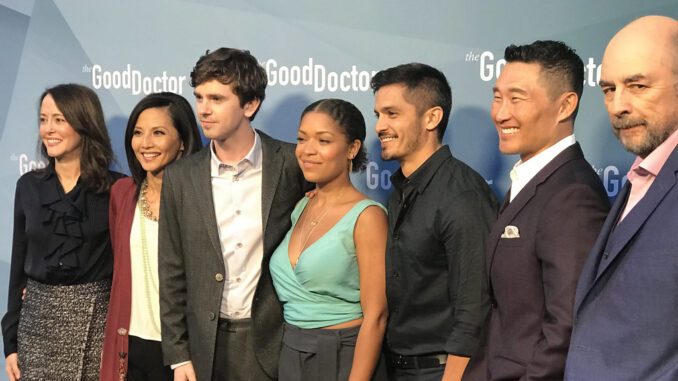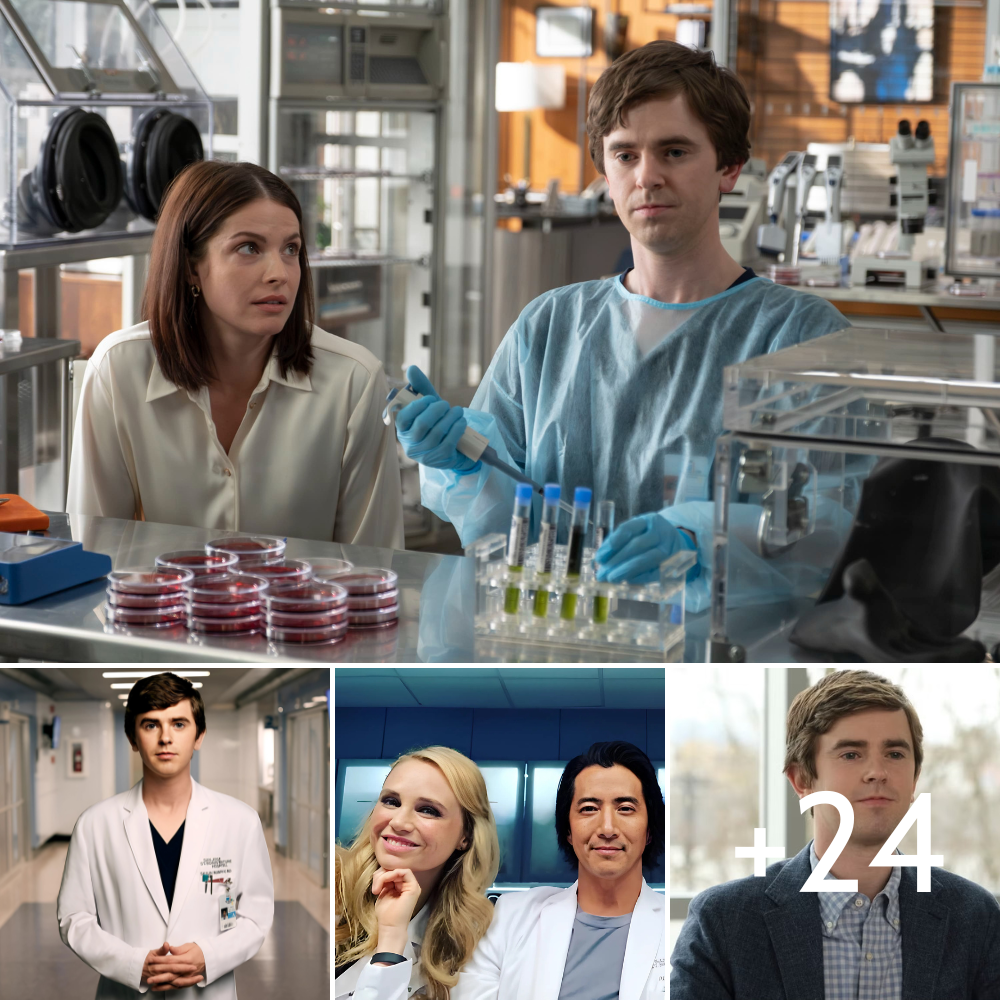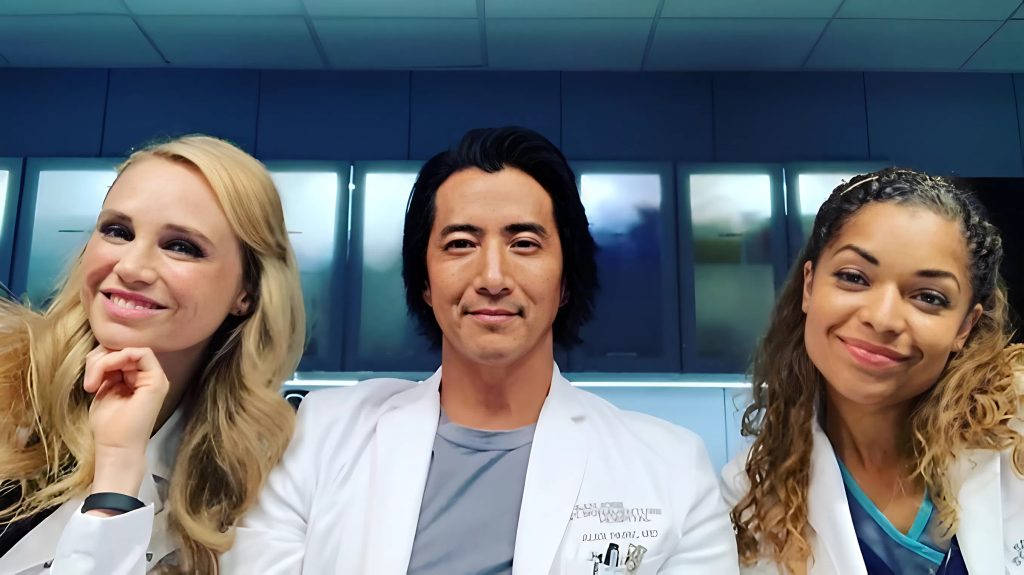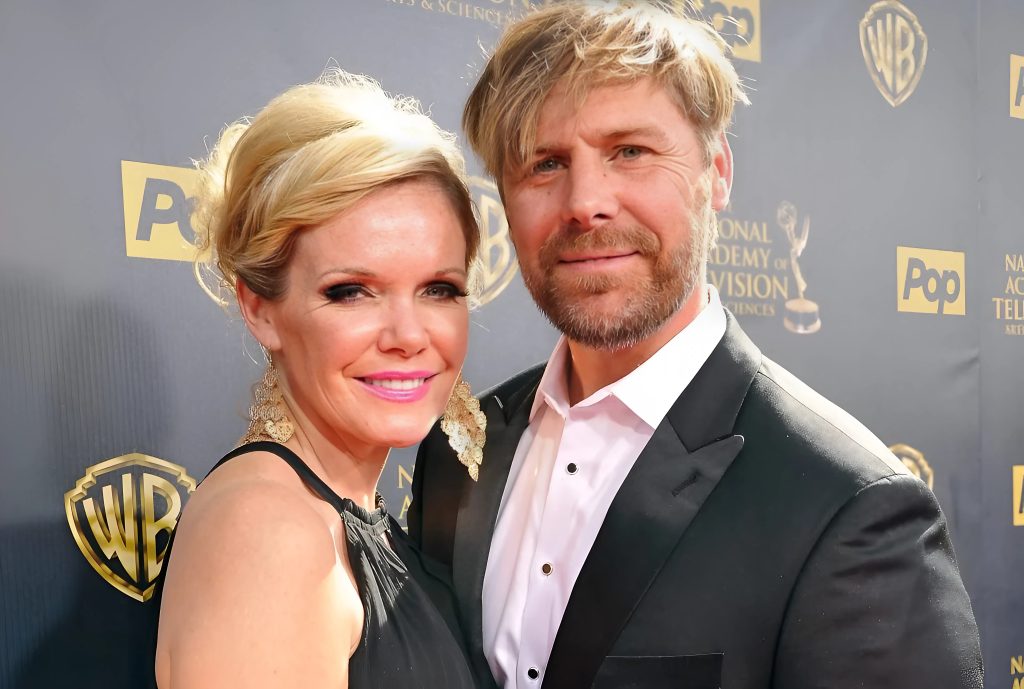
In television dramas, the tension often unfolds in operating rooms or emergency wards, where lives hang in the balance. Yet in the first episode of The Good Doctor, one of the most gripping conflicts does not involve scalpels or heart monitors. Instead, it plays out in a hospital boardroom. Here, Dr. Shaun Murphy’s future hangs by a thread—not because of a failed surgery or a lack of medical knowledge, but because of prejudice, fear, and a question that resonates far beyond the walls of San Jose St. Bonaventure Hospital: Can someone with autism truly succeed as a surgeon?
This conflict, centered on Shaun’s acceptance into the surgical residency program, becomes the emotional and thematic heart of the pilot episode. It is not simply about hiring one doctor. It is about redefining who belongs in medicine and, more broadly, in society.
The Doubts That Shadow Shaun
Shaun’s brilliance has already been demonstrated in dramatic fashion at the airport, where he saved a young boy’s life with extraordinary skill and improvisation. But when it comes to his professional career, the hospital board is far from convinced. Leading the opposition is Dr. Marcus Andrews, a highly respected surgeon with ambitions of becoming hospital president.
Andrews raises a concern that many in the room silently share: Shaun’s autism. His argument is not framed as outright discrimination but as practical concern. How can a surgeon who struggles with social cues, who does not communicate like others, handle the pressures of the operating room? Surgery, after all, is not just about technical precision—it requires teamwork, clear communication, and leadership. Andrews insists that Shaun’s differences could endanger patients rather than save them.
It is a moment that rings true to real-world conversations about inclusion. Doubt is often cloaked in the language of practicality, yet underneath lies the fear of the unfamiliar.
The Voice of Advocacy: Dr. Aaron Glassman
Standing firmly against this tide of skepticism is Dr. Aaron Glassman, the hospital president and Shaun’s longtime mentor. Glassman has known Shaun since his troubled youth, and he is the one who has shepherded him toward medicine. For Glassman, this is not just about giving Shaun a job—it is about giving him a chance at life, dignity, and purpose.
Glassman argues passionately that Shaun’s autism should not disqualify him. On the contrary, his unique perspective and extraordinary memory are assets that the hospital cannot afford to overlook. More importantly, Glassman challenges the board to confront their own biases. Should a person be judged solely by how they interact socially, or by what they can contribute to saving lives?
The clash between Glassman and Andrews becomes more than a debate about Shaun. It represents two competing visions of medicine: one that values conformity and tradition, and another that embraces innovation and diversity.
The Boardroom as a Battlefield
What makes this scene so powerful is that it strips away the distractions of medical emergencies and forces the characters—and the audience—to face uncomfortable truths. In the sterile setting of a boardroom, where decisions are usually made based on credentials and experience, Shaun is judged instead on perception and fear.
As the debate escalates, the tension is palpable. Andrews frames his doubts in terms of patient safety, while Glassman counters with Shaun’s airport rescue as undeniable proof of his competence. The board members, caught in the middle, reflect the larger societal dilemma: do we stick to what feels safe and familiar, or do we take a chance on someone who challenges our expectations?
The Symbolism of the Struggle
This battle is not just administrative—it is symbolic. For Shaun, acceptance into the residency is not only about career advancement but also about belonging. His entire life has been shaped by rejection, misunderstanding, and exclusion. To be denied this opportunity would not just stall his career; it would reinforce the message he has heard his whole life—that he is not enough.
For Glassman, the fight is personal too. He has invested years in nurturing Shaun, believing in him when others would not. Losing this battle would mean more than losing a protégé; it would mean losing faith in the idea that institutions can change, that barriers can be broken.
The Power of Proof
What ultimately sways the argument is not Glassman’s advocacy alone but Shaun’s own actions. The footage of him saving the boy at the airport circulates, and suddenly the abstract debate has a concrete answer. Shaun’s abilities are not theoretical; they are real, tested under pressure, and life-saving.
The boy’s survival becomes Shaun’s strongest argument, one that no board member can ignore. It forces even skeptics like Andrews to reckon with the truth: whatever challenges Shaun may face in communication, his brilliance in surgery is undeniable.
A Reflection of Real-World Bias
The brilliance of this storyline lies in its realism. People with autism and other disabilities often encounter skepticism in professional settings, regardless of their skills or qualifications. The boardroom debate mirrors real hiring committees where decisions are influenced by bias—sometimes unconscious, sometimes overt. By dramatizing this struggle, The Good Doctor doesn’t just tell Shaun’s story; it shines a light on systemic barriers that many viewers recognize from their own lives.
The series also resists easy answers. Even after Shaun is accepted, Andrews remains doubtful, and those doubts continue to shape their relationship throughout the series. Acceptance is not a one-time victory but an ongoing struggle.
Why This Conflict Matters
The boardroom battle matters because it raises the central question of the show: What does it mean to be a “good doctor”? Is it someone who conforms to social expectations, or someone who saves lives in extraordinary ways, regardless of how they fit in?
By positioning this debate at the heart of the pilot, the writers ensure that every triumph Shaun achieves in later episodes is framed against this initial skepticism. His surgeries, his growth, and his moments of vulnerability all echo back to this moment when the world told him “no,” and he—and Glassman—fought for “yes.”
Rate this post


